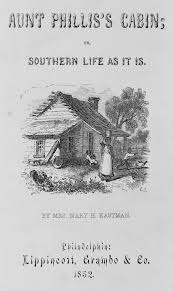Uncle Tom's Cabin Significance
What was Uncle Tom’s Cabin?
Written by Harriet Beecher Stow, Uncle Tom’s Cabin remains a literary success. Not only did the novel introduce Northerners to the truths of slavery, but placed them into the perspective of what life was like for slaves.
The book would be translated to over 60 different languages and spread about the globe, revealing the truths of slavery to the rest of the world that was not present within the south.
Knockoffs:
Of course with anything, there will be knockoffs, and Beecher’s book is no exception. Pro-slavery books with a lack of a creative name were often created that attempted to skew the audience’s perspective upon slavery: An amazing relationship with owners and slaves.
Below is an example of one of the knockoffs: Aunt Phillis’s Cabin

What about the people who couldn’t read?
People who were illiterate often watched what was referred to as Tom Shows. Tom Shows represented a depiction of slavery in an attempt to connect to Uncle Tom’s Cabin. However, these shows often depicted stereotypes of the Black and African populations of the time, and the term ‘You’re an Uncle Tom’ was often perpetuated negative connotations.